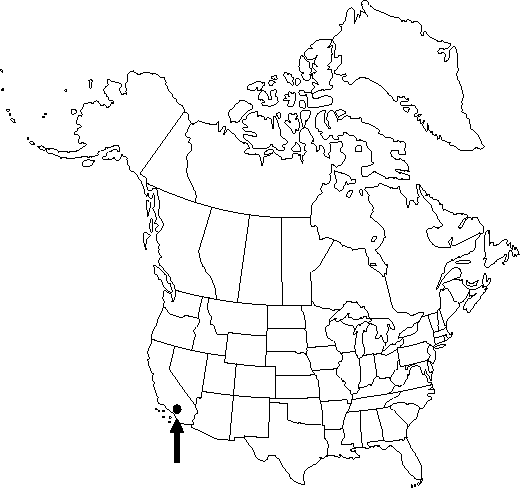Difference between revisions of "Quercus durata var. gabrielensis"
Novon 4: 392. 1994.
FNA>Volume Importer |
imported>Volume Importer |
||
| (One intermediate revision by the same user not shown) | |||
| Line 57: | Line 57: | ||
|publication year=1994 | |publication year=1994 | ||
|special status=Conservation concern;Endemic;Illustrated | |special status=Conservation concern;Endemic;Illustrated | ||
| − | |source xml=https:// | + | |source xml=https://bitbucket.org/aafc-mbb/fna-data-curation/src/2e0870ddd59836b60bcf96646a41e87ea5a5943a/coarse_grained_fna_xml/V3/V3_110.xml |
|genus=Quercus | |genus=Quercus | ||
|section=Quercus sect. Quercus | |section=Quercus sect. Quercus | ||
Latest revision as of 21:46, 5 November 2020
Shrubs, openly branched, scraggly. Leaf blade moderately cupped, sometimes almost planar; surfaces abaxially with hairs usually 2-4 mm, rays arched, curved or straight, not curly, adaxially green, glossy, usually glabrate or sometimes sparsely stellate-pubescent.
Phenology: Flowering spring.
Habitat: Chaparral on dry, exposed, loose slopes in nonserpentine soils
Elevation: 450-1000 m
Discussion
Of conservation concern.
Quercus durata var. gabrielensis occurs only in Los Angeles County, on the southern slope of the San Gabriel Mountains from La Canada to Pomona. In this area along the lower elevational limits of this variety, occasional intermediates with Q. engelmannii occur [= Q. ×grandidentata Ewan (as species)]. These putative hybrids are large shrubs or small trees with leaves that are persistently woolly on the abaxial surface and have coarse regular teeth. Unfortunately, most of these hybrids have been eliminated by the same uncontrolled growth that has largely expirated Q. engelmannii in this area.
Selected References
None.

